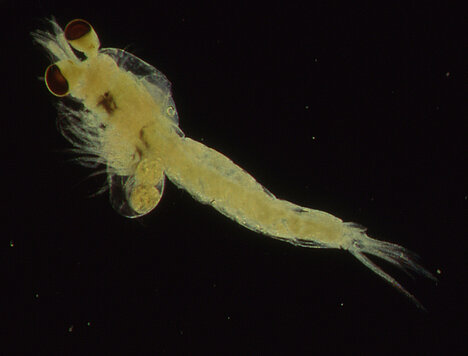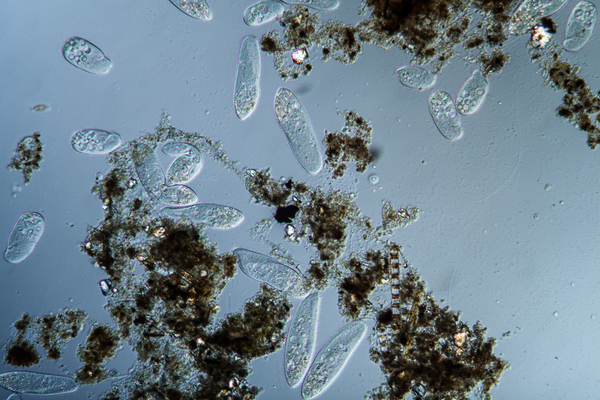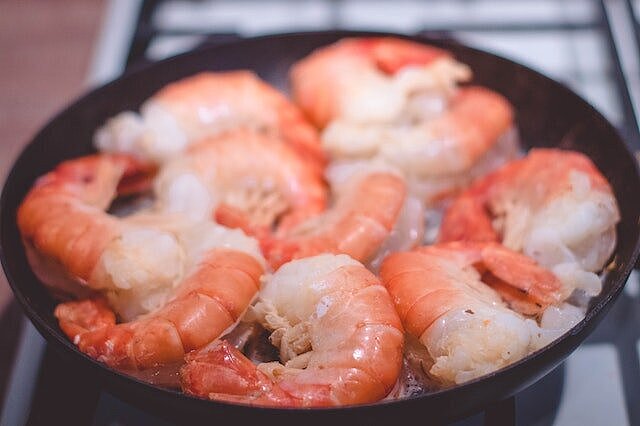Krill

You may have heard of krill, but do you know what it is and why it can be good for your dog? This article will tell you everything you need to know about this little sea creature.
What is krill?
Krill is a term for various species of small crustaceans that live in large shoals in the cold waters of the Antarctic and North Atlantic. They feed mainly on phytoplankton and are an important food source for many larger animals such as whales, seals, penguins and fish.
How does krill get into dog food?
Krill is usually processed into oil or meal, which is then used as an ingredient in various dog food products. Krill oil contains many omega-3 fatty acids, which are important for the health of your dog's skin, coat, heart and brain. Krill meal is a good source of protein that also provides many vitamins and minerals.
What are the benefits of krill for your dog?
Krill has several advantages over other sources of omega-3 fatty acids such as fish oil or linseed oil. Firstly, krill is more sustainable as it is found in large quantities and is less threatened by overfishing. Secondly, krill is easier to digest as it has a phospholipid-based form of omega-3 that is more easily absorbed by the cells. Krill also contains the antioxidant astaxanthin, which protects against cell damage and strengthens the immune system.
What are the disadvantages of krill for your dog?
Krill also has some potential disadvantages that you should be aware of. For one, krill can trigger allergic reactions in some dogs that are sensitive to shellfish. Secondly, krill can contain heavy metals or other harmful substances that originate from seawater. You should therefore always pay attention to the quality and origin of the krill and only buy products from trustworthy manufacturers.
Krill is a healthy ingredient for your dog that has many health benefits. However, you should also keep an eye on the possible disadvantages and test your dog for tolerance.
If you notice any signs of hypersensitivity or poisoning in your dog, you should see your vet immediately. We are not a substitute for a vet, but we try to be as accurate as possible. Every dog reacts differently and we recommend you get a second opinion or consult your vet if in doubt.
Stay healthy and take good care of your four-legged friend!😊
Similar to Krill
What is marine zooplankton? Marine zooplankton is the collective term for all small animals that float or swim in seawater. These include, for example, crustaceans, worms, jellyfish, snails and many...
Shrimps are crustaceans that belong to the crustacean family. They have a chitinous exoskeleton, antennae and ten legs. There are around 20,000 different types of shrimp, most of which live in salt...
Prawns are rich in protein, which is important for your dog's muscle development and health. They also contain many vitamins and minerals such as vitamin B12, zinc, selenium and iodine, which...
Cuttlefish belong to the class of cephalopods, a group of marine animals that also includes octopuses and cuttlefish. They are known for their unique body structure, including their large head...



